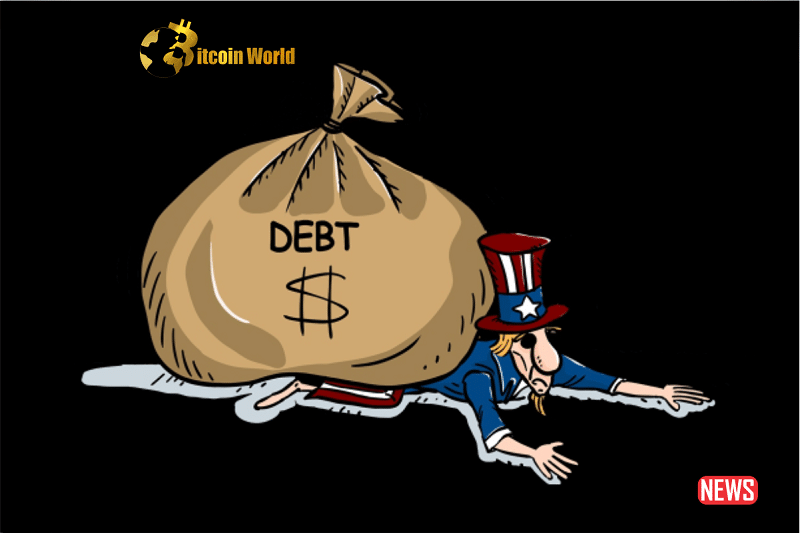Ever feel like you’re watching a high-stakes drama unfold, but with the world’s economy as the stage? That’s the vibe surrounding the current debate over the US debt ceiling. Democratic Congressman Jim Himes has sounded a serious alarm, suggesting that this ongoing standoff could actually jeopardize the United States dollar’s coveted position as the world’s reserve currency. Let’s break down what this means and why it’s got financial experts on edge.
What’s the Fuss About the Debt Ceiling Anyway?
Think of the debt ceiling as a credit card limit for the US government. It’s the maximum amount of money the government is allowed to borrow to pay its existing legal obligations. These obligations range from Social Security and Medicare payments to military salaries and interest on the national debt. When this limit is reached, Congress needs to raise it to allow the government to continue paying its bills.
Why is Congressman Himes So Concerned?
In a recent interview, Congressman Himes didn’t mince words. He stated that the US is closer to defaulting on its debt than ever before. This isn’t just political rhetoric; it reflects a genuine concern about the potential ramifications of failing to raise the debt ceiling. Himes went on to describe a potential default as “catastrophic” for both the future of the United States and the dollar itself.
The Unthinkable: A US Debt Default
It’s true, the idea of the United States defaulting on its debt feels almost surreal. We haven’t been in this position before, at least not to this degree. This makes it hard to fully grasp the potential consequences. However, experts warn that the impact could be far-reaching and devastating.
The Dollar’s Reign: Built on Trust
To understand the potential damage, it’s crucial to remember why the US dollar holds the top spot as the world’s reserve currency. Essentially, it boils down to trust and faith in the stability and reliability of the US government. This trust is the bedrock of the international monetary system. If that trust is shaken, the consequences could be significant.
Could the Dollar Lose Its Crown?
This is the core of Congressman Himes’s concern. A default could seriously undermine the dollar’s standing. Here’s what could happen:
- Decreased Value: The value of the dollar could decline as investors lose confidence.
- Shift in Investments: Countries and investors might start looking for safer havens, potentially shifting their investments to other currencies like the Euro or the British Pound.
- Increased Borrowing Costs: A default could make it more expensive for the US government to borrow money in the future, leading to higher interest rates.
Echoes of Concern: Yellen and Clinton Weigh In
Congressman Himes isn’t alone in his apprehension. Treasury Secretary Janet Yellen earlier this month warned of an “economic calamity” if the debt ceiling isn’t addressed. Similarly, former Secretary of State Hillary Clinton has cautioned about a potential “financial meltdown” on a global scale if the US defaults.
What are the Potential Ramifications of Losing Reserve Currency Status?
Losing its reserve currency status wouldn’t be an overnight event, but the long-term implications could be substantial:
- Higher Import Costs: A weaker dollar would make imports more expensive for American consumers and businesses.
- Reduced Global Influence: The dollar’s dominance gives the US significant leverage in international finance and trade. Losing this could diminish America’s global influence.
- Economic Instability: The transition to a new reserve currency could be a period of significant economic uncertainty and volatility.
Is There a Silver Lining?
While the situation is serious, it’s important to remember that this is a political process. Negotiations are ongoing, and there’s still time for a resolution. The US has always managed to resolve debt ceiling debates in the past, albeit sometimes at the eleventh hour.
What Can We Learn From This?
This situation highlights the interconnectedness of the global economy and the importance of responsible fiscal policy. Here are a few key takeaways:
- Global Interdependence: The stability of one nation’s currency can have ripple effects across the world.
- Importance of Fiscal Responsibility: Managing national debt is crucial for maintaining economic stability and global confidence.
- The Power of Perception: Trust and confidence in a nation’s economy are vital for its financial standing.
Looking Ahead
The coming weeks will be critical in determining the outcome of this debt ceiling debate. The world is watching closely, hoping for a swift and sensible resolution that avoids a potentially devastating economic crisis. The stakes are incredibly high, not just for the United States, but for the global financial system as a whole.
Disclaimer: The information provided is not trading advice, Bitcoinworld.co.in holds no liability for any investments made based on the information provided on this page. We strongly recommend independent research and/or consultation with a qualified professional before making any investment decisions.


